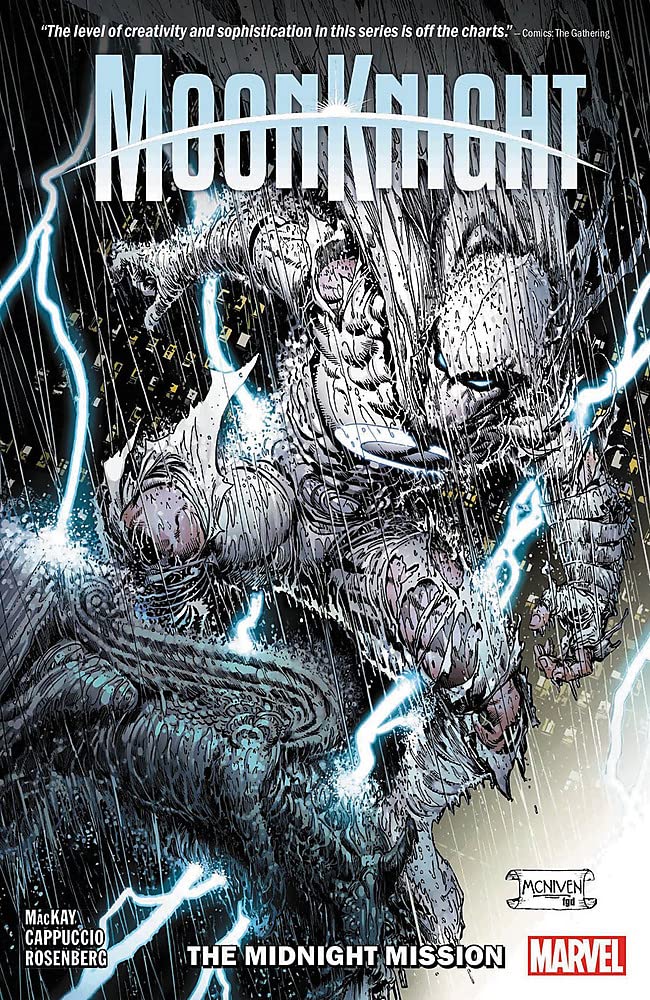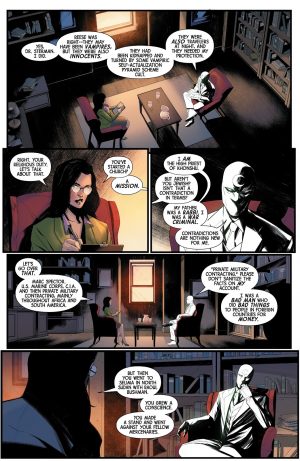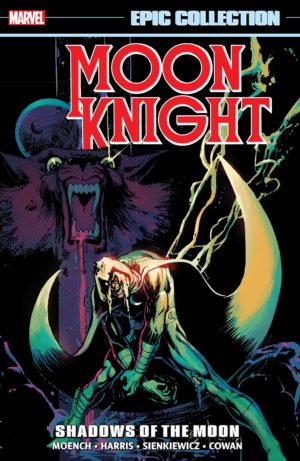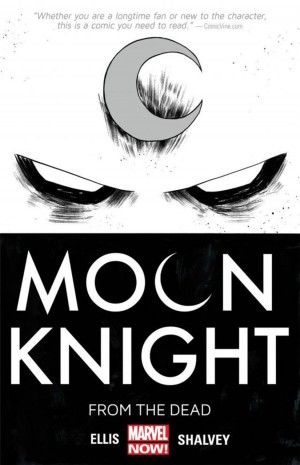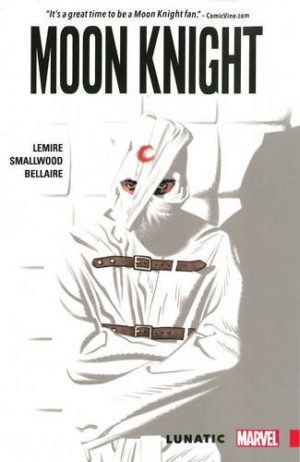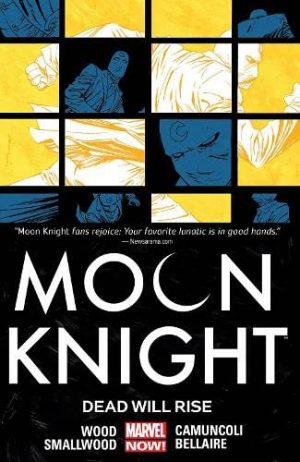Review by Ian Keogh
With a Moon Knight TV show due to launch early in 2022, Marvel turned to TV writer Jed MacKay for yet another try at a Moon Knight comic. In over forty years Moon Knight has never sustained an audience for longer than three years, and most 21st century reboots have barely lasted one, which is puzzling because it’s not as if most haven’t been readable at the very least, with several better. MacKay and Alessandro Cappuccio’s version is near the upper end of the scale based on The Midnight Mission, and as the series continues it rises to be considered among the best.
MacKay runs through Moon Knight’s complicated background and origins via an opening chapter discussion with a psychiatrist, which is a useful device for packing in relevant information, but post-Sopranos it hardly seems original at first. That, though, is the wrong impression. There is precedence for therapy, especially during Dead Will Rise, so it feeds into the idea of MacKay amalgamating Moon Knight’s assorted personas. Higher on that scale is the recasting of Moon Knight as an urban vigilante with a storefront for local residents, who seem to have a vampire infestation, and the idea of his considering himself serving as a priest for a now disgraced god (see The Avengers: The Age of Khonshu).
An early combination of explanation with flashbacks ensures we see both sides of Cappuccio’s talent. He makes the conversations interesting via the viewpoints, poses and backgrounds, while the image of a man in a pristine white suit with full white head covering is immediately striking. The movement of the action is also notable, full figured and exquisitely choreographed, with good use of shading on Moon Knight’s costume. Cappuccio’s pages look good to start with, and only improve.
The same applies to MacKay’s work. The psychiatric evaluation seems an easy means to an end at the start, but MacKay persists with the therapy sessions, and they gradually deliver a greater purpose of reconciliation, and Doctor Sterman will be a continuing and rapidly compelling presence for her insights into Moon Knight. Part of Moon Knight’s complexity is that so many writers have dealt with him by adding further layers. There are the multiple identities, the religious element, the Jewish heritage, the vengeful superhero, and the one-time mercenary all to be reconciled. It’s actually an impossible task to manage with coherence, but MacKay’s Moon Knight is credible and sympathetic. He additionally manages to twist the plots well, maintains tension and importantly, recognises a capacity for change.
It’s not apparent from just reading The Midnight Mission how well it sets up storylines that will come to occupy the following two volumes, which are even better. Too Tough to Die is next.
